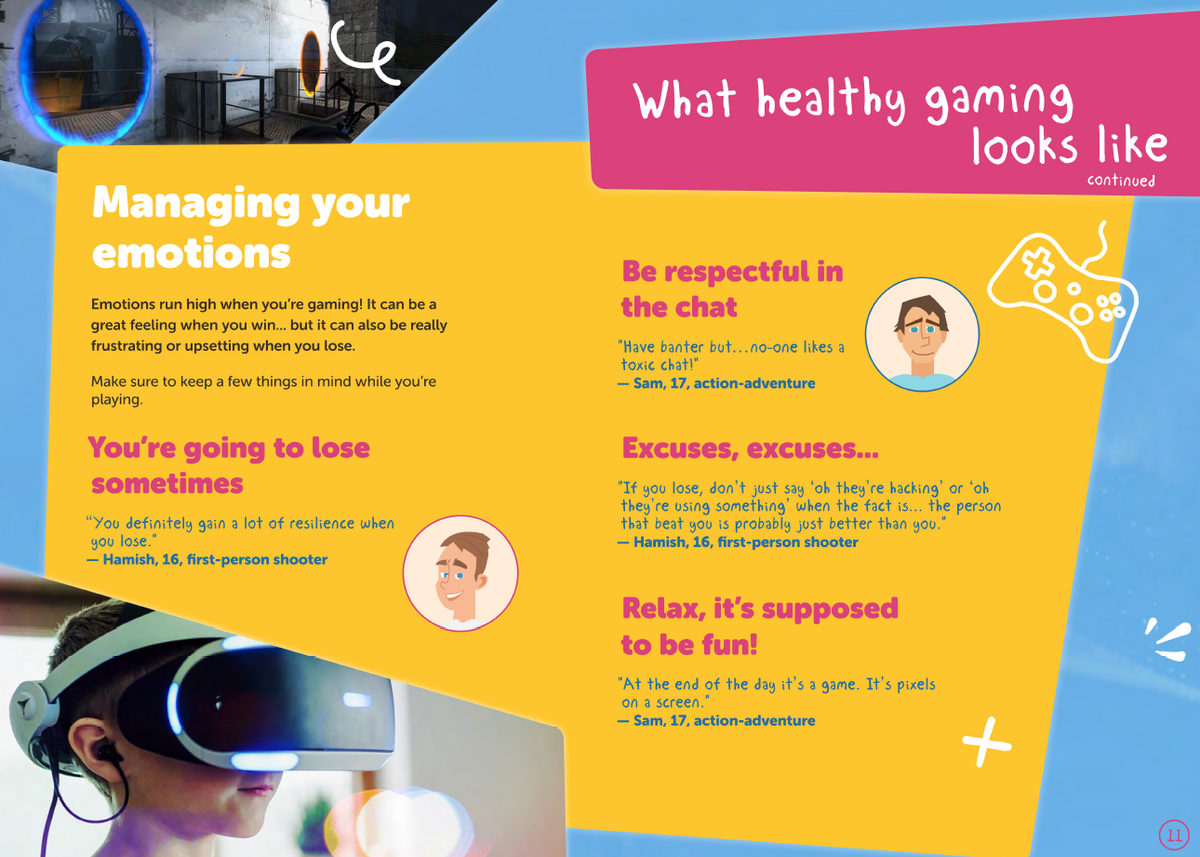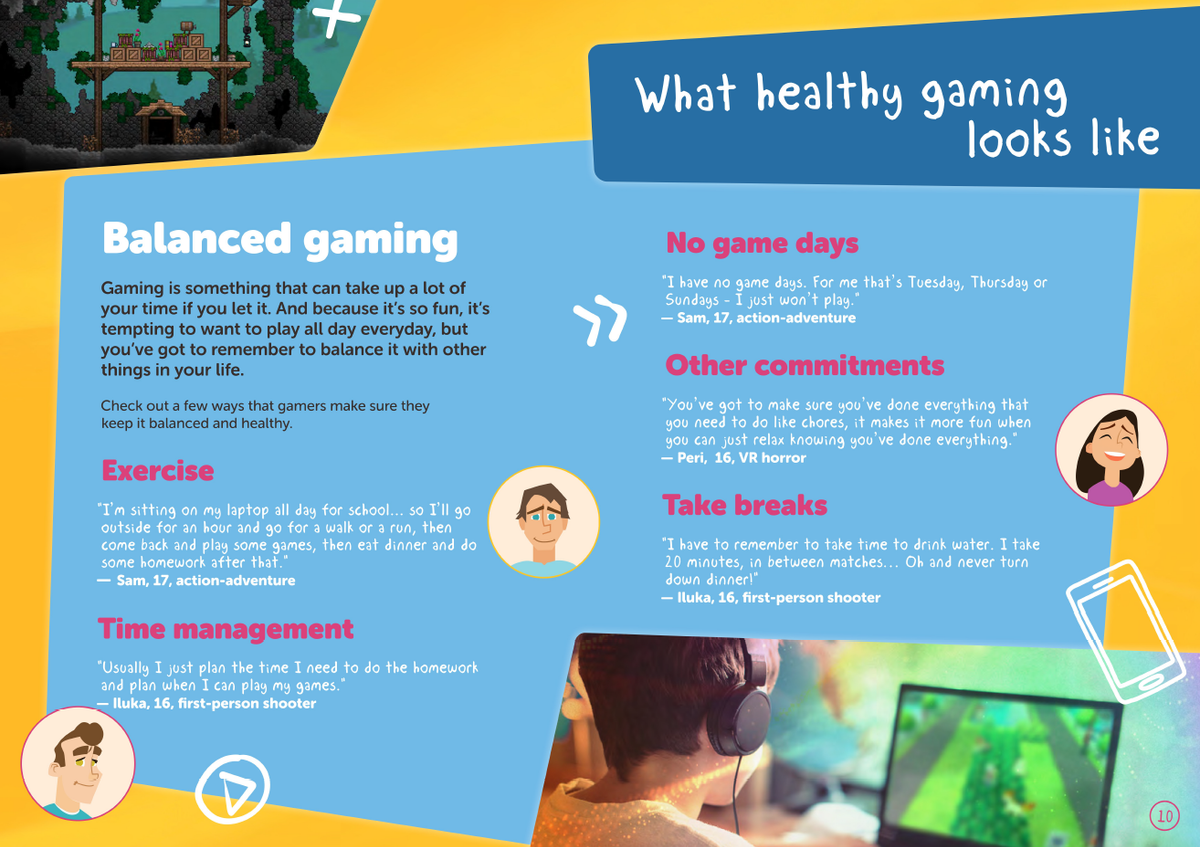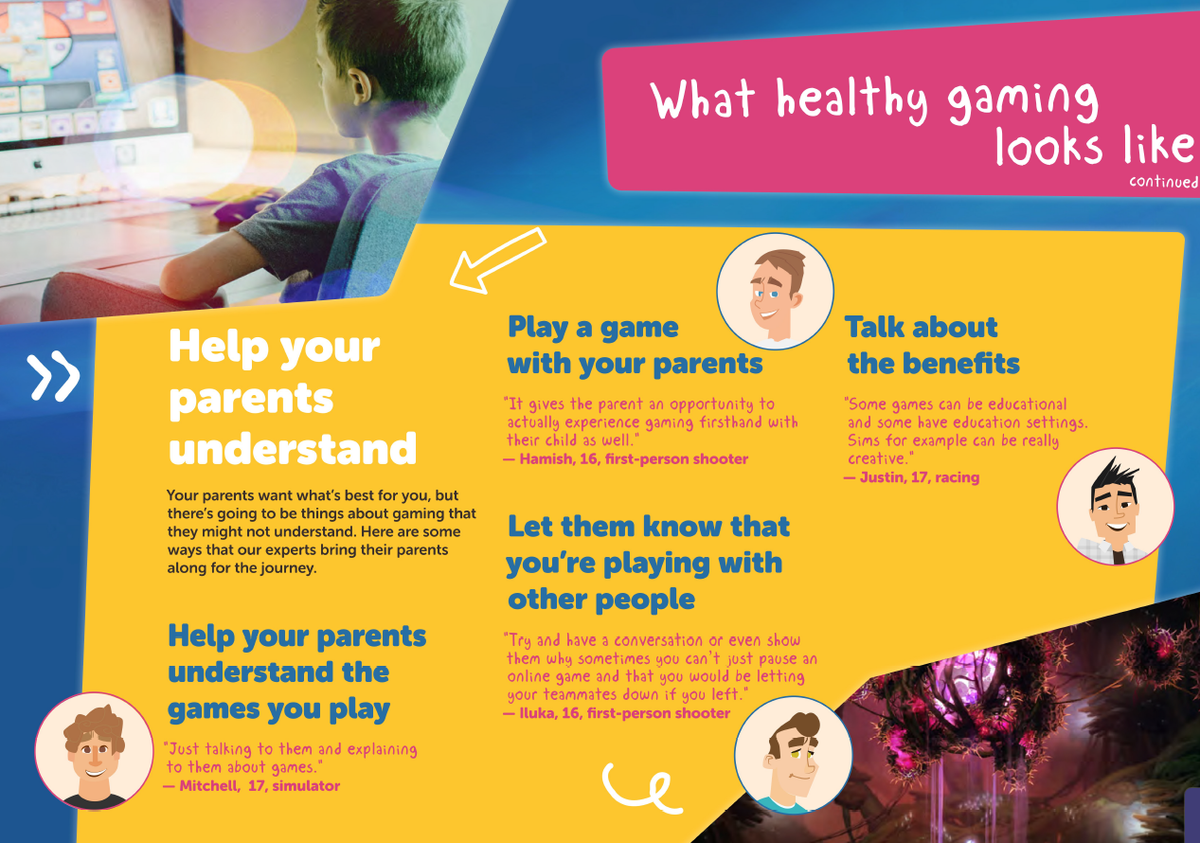eSmart Update
Gaming

eSmart Update
Gaming
Student attention is being drawn in different directions by the access that we all have to phones, games and constant connection to people. These digital distractions are getting better at making people want to keep engaging with them and they all compete for attention.
Social media platforms like TikTok, Snapchat, Instagram, and others are run by algorithms that are designed to make you want to keep looking and keep scrolling the app, knowing that when you see enough advertising you’ll eventually purchase something. It is no wonder that kid's attention seems to be on everything, everywhere, all at once.


Next week is the launch of eSmart Week, a week dedicated to awareness of cyberbullying and good digital habits. As a part of the launch I have included an article about raising awareness of healthy gaming and forming good habits when it comes to digital entertainment.
Gaming can be one of a child’s easiest and most effective strategies for stress relief, learning new skills, building resilience and for building connections with their friends and others. With gaming being more accessible than ever through computers, phones and other devices, you will probably find children engaging with at least one form of digital game or app as a means of enjoyment and stimulation. These skills are also becoming more transferable to modern careers, and even the playing of games itself has career paths into different industries such as professional eSports athletes, streaming or content creation careers or games journalism.
It is important to understand why children build such quick connections to the games they are playing. A lot of games today run on a model of continued engagement to maintain their revenue. You might have heard of battle passes, subscriptions, pay-to-win games, daily login prizes, loot boxes and other ways that games draw people into continuing to play them. Many games these days will entice people with free entry and play but lock cool-looking cosmetics or boosts to their gameplay behind hours of gameplay, challenges or payment.
These are some of the reasons why a child will want to spend so much time with them as they can provide so many achievements and feelings of enjoyment over a long time, which works to build incentives for people to continue playing each day and for long hours. They can also provide an escape from the stresses of life, providing an ideal engaging activity to help provide an avoidance strategy for stress. The more time someone spends playing a game, the more likely they are to engage in advertising or buy items/services from the game, so games especially are designed to keep you engaged for as long as possible. For most people, this means that they will likely feel drawn to opening the app and completing some of the tasks throughout the week. For some people, this can draw them in for long stretches of time and preoccupy their thinking when they are not playing the game, making them want to continue playing at the expense of having family and friend's time and other activities.


Children are especially susceptible to being drawn into these games as their brains are still developing while they are being subjected to these methods of engagement, building brain pathways that increase their chances of being predisposed to those behaviours.
Interruptions to these pathways can display in a lack of emotional resilience, outbursts, inability to stop using devices and even prioritising their devices over school, relationships and sleep. It can be hard to begin breaking these habits once established as they become more hard-wired into their developing brains.
Like all enjoyable things, gaming should be enjoyed in moderation with other activities and ensuring a balanced approach is being taken. If gaming sessions are going for extended periods of time, keep these following points in mind:
Breaks provide space for the brain to de-stress and regulate itself again, especially if it is getting hard to regulate emotions. Getting emotional with gaming is a good way to be worse at the game, creating a cycle of frustration that usually can only be defused with a break. It is important to remind children of these points as they need reminders to regulate themselves.
Gaming is a great hobby to have, and one way you can connect with your child about it is by asking them about what they’re doing, how they’re going or even having a go at the game yourself so you can understand what they are doing. Attached are some materials about healthy gaming that can support conversations with your children. If you would like to read the full document, click the link here.






As part of our focus on gaming, the eSmart Team would appreciate it if you could complete this quick 3-question survey about your child/children’s gaming habits. Click on the link here or scan the QR code attached.


William Lees